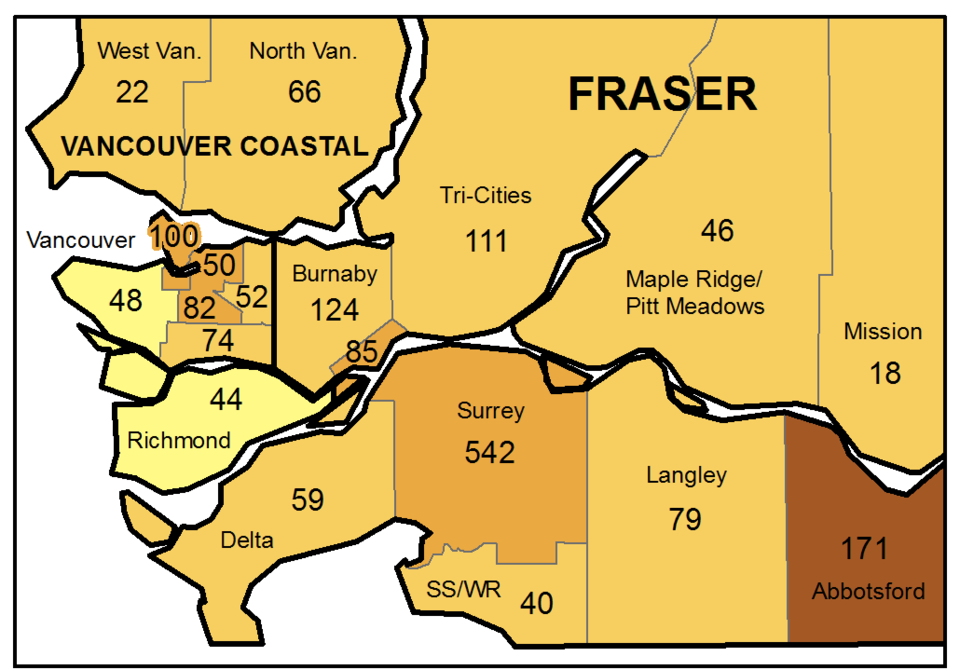After two weeks of declines in local COVID cases, the numbers of new cases of the virus are up on the North Shore.
The North Shore reported 88 new COVID-19 infections in the week ending Jan. 30, according to information posted by B.C.’s Centre for Disease Control.
That’s 21 more cases than the week previous and similar to the 84 cases reported on the North Shore three weeks ago.
Of the new cases, 66 were in North Vancouver and 22 were in West Vancouver.
Both North Shore communities have a rate of infection similar to most of the Lower Mainland: between five and 10 new cases per 100,000 per day.
Statistics released on Friday showed the North Shore has reported 1,949 cases of COVID-19 between the start of the pandemic last January and the end of January 2021.
The number of new cases in various communities in the Lower Mainland has remained relatively stable in recent weeks.
The one notable exception has been Whistler and the surrounding area, which stood out as the worst hit area of the Lower Mainland after logging 287 new COVID infections in the week ending Jan. 30 in a relatively small population.
That’s on top of 224 new cases the week before and 63 cases the week prior to that.
Recently, Whistler Mayor Jack Crompton issued a statement voicing concern about the rising numbers of COVID cases, which are being spread through gatherings in homes and workplaces and through cramped living quarters.
Seven Whistler bars and restaurants are on Vancouver Coastal Health’s list of possible public exposures to the virus.
Elsewhere in the province, COVID hotspots include the Bella Coola Valley, Cariboo/Chilcotin, Upper Skeena, and communities of Nisga’a, Merritt and Fernie.
B.C. had recorded a total of 68,780 cases of coronavirus as of Wednesday, with 4,426 active cases provincewide. In the Vancouver Coastal Health region, there were 1,112 active cases – a number that has increased two weeks in a row.
B.C. had also administered approximately 142,146 doses of vaccine out of 156,250 doses distributed.
Supplies from the vaccine manufacturer have been reduced dramatically this week – a slowdown that could last until March.




